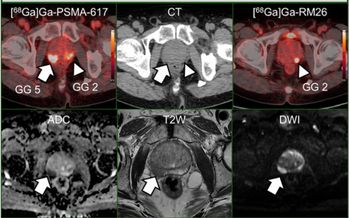
GE-OEC suspends surgical c-arm shipments
GE Healthcare has voluntarily stopped shipping certain mobile C-arm units from its OEC manufacturing facility in Salt Lake City. The company took the action after an FDA inspection in August found “nonconformities in GE Healthcare’s quality system practices,” according to the company.
GE Healthcare has voluntarily stopped shipping certain mobile C-arm units from its OEC manufacturing facility in Salt Lake City. The company took the action after an FDA inspection in August found "nonconformities in GE Healthcare's quality system practices," according to the company.
The problems, according to GE, are limited to surgical products manufactured at the OEC plant. A source at the company confirmed that mobile C-arm fluoroscopy systems designed for surgical applications are involved, as well as other surgical products such as disposables and accessories.
GE executives refused to be interviewed by DI SCAN, but offered a prepared statement regarding regulatory issues surrounding the GE-OEC plant.
"The company takes the FDA observations very seriously and is working aggressively to address and resolve the issues identified as quickly as possible," the statement said. "The company continues to have confidence in the safety and effectiveness of its products."
GE Healthcare is framing the shipping suspension as a voluntary delay. It will stay in effect until the firm's processes have been revalidated, according to GE, to ensure compliance with FDA regulations.
The company reported when the investigation uncovered flaws at the OEC plant, but not when the shipping suspension began. An FDA official authorized to speak about the GE situation was not immediately available. Questions may remain unanswered, however. A spokesperson for the FDA warned that staff may be limited in the kind of information that can be disclosed regarding such cases.
The situation could complicate the commercial release of GE's latest mobile C-arm, the GE-OEC 9900 Plus mobile fluoroscopy system, which cleared the FDA on Aug. 15. FDA documents accompanying the submission of this system cite surgical applications, suggesting that the 9900 Plus will not begin shipping until the issue with the FDA is resolved.
In its prepared statement, GE noted only that FDA observations involved surgical products. Other imaging products that may be affected include configurations of the OEC 9900 Elite and 9800 Plus.
Newsletter
Stay at the forefront of radiology with the Diagnostic Imaging newsletter, delivering the latest news, clinical insights, and imaging advancements for today’s radiologists.













